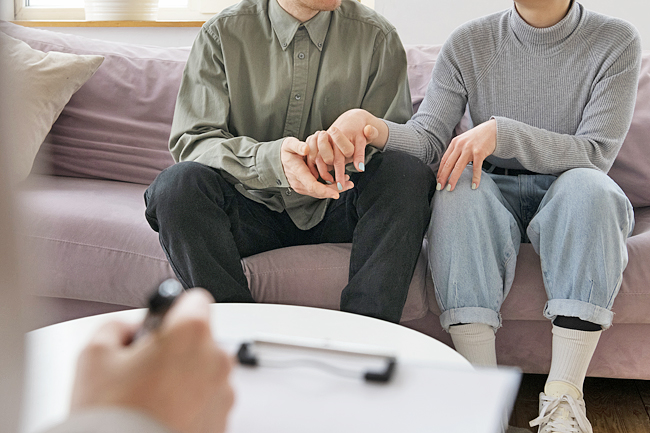THE WASHINGTON POST – As a therapist who counsels couples, I have seen many people struggle with tough problems that are difficult to talk about. How do you tell a partner you don’t want to move in together? Should you reveal an affair?
In almost every relationship, there’s an issue about which someone is growing increasingly resentful. It could be significant, like waning passion. Or it could be small, such as the partner never replacing the empty toilet paper roll.
In each of these examples, one person can be stuck in a decision-making limbo – they aren’t happy but they don’t know what to do about it. A decisional impasse ranks high among the reasons people seek marital therapy.
Decision paralysis is not a relationship problem, it is a human one. Our brain favours the current state relative to an uncertain future state (known as status quo bias), research shows.
Facing a painful or scary decision about our relationships is stressful, which can make it even harder to make a decision.
“When we are stressed, we are operating in a state of high emotion. And based on how our brains work, when our emotions are high, our cognitive abilities are low,” said Money And Love author Abby Davisson.


Relationships tend to be an area where we have to make significant, stress-inducing decisions when our heads are less clear.
To avoid the kinds of faulty decision-making habits and biases we are all prone to, we can apply tools from both decision science and the therapy room.
Here are some strategies to try.
SLOW DOWN
Decision scientists such as Nobel laureate Daniel Kahneman distinguish between a rapid intuitive thinking system and a more deliberate thinking system. The intuitive system helps you make decisions quickly and automatically, and it is particularly useful when you are in imminent danger.
It is far less useful, though, when you have a complex decision to sort out.
“Slow down and move out of intuitive and emotional thinking into more deliberate and logical thinking,” Davisson said.
She recommended steps such as clarifying what is most important, checking in with trusted sources and exploring consequences to help make “more informed and intentional decisions”.
If a person is struggling to decide whether to disclose infidelity, for instance, these steps might help them get beyond emotions such as fear and guilt to be more deliberate in choosing to remain silent or sharing the information with their partner.
CLARIFY YOUR VALUES
“What truly matters to you?” asked The Rough Patch author Daphne de Marneffe. The work of making hard decisions in relationships, she said, “ultimately lies in the realm of values clarification”.
Emotions come and go, but values offer a steady guide reminding us about the kind of person we most want to be in a given role, context or moment.
Values help us to override cognitive biases and bolster our courage by offering something to stand for. As you try to make a difficult decision, ask yourself: What do I want to stand for?
One couple who came to me were trying to decide whether their marriage was worth saving.
Each found it hard to identify things they appreciated about the other.
They avoided each other at home and did not feel they had anything in common except their two school-aged children. Unhappy as they were, however, a divorce seemed unthinkable.
It would affect the children and have a financial and social impact on the couple.
After asking themselves how they could show up as healthier individuals for their children, they landed on a value of fostering greater individual contentment, letting this guide their choice of a trial separation for a half year.
There was pain and uncertainty for them and their children, but there was also an appreciation of breaking out of the decision inertia they had been trapped in for years.
There also was pride in giving themselves a chance for a more fulfilling future.
After the six months passed, they decided to go through with a divorce, finding that their happiness and ability to parent improved while living apart.
When we are confronted by a difficult decision, we are tempted to frame the problem in simple terms such as “either/or”.
These kinds of questions would have us pick between two distinct choices: stay or go, disclose or keep secret, approach or avoid.
When we think in this way, however, “right off the bat we have limited ourselves in the way we have framed that question to those two options”, Both/And Thinking author said Marianne Lewis.
REFRAME YOUR QUESTION
She advised carefully reframing the question from “either/or” to “both/and”. For example, you might upgrade “do we divorce or stay unhappily married?” to “how can we be happier as individuals and co-parents?” And you might swap “should I tell my partner to get their act together on toilet paper refills or stay quiet?” for “how might I invite my partner to be more of a teammate on doing the household grunt work?”
EMBRACE DELIBERATE CHOICE
“The benefit of deciding, even if the options are not great, is knowing you chose the path and did not just let it happen to you,” said research professor and Director of the Center for Marital and Family Studies at the University of Denver Scott Stanley.
“You chose what seemed like the best way through, and that can help follow through.”
Stanley has a fascinating line of research focusing on how couples decide to live together before (or instead of) getting married.
Some are deliberate about moving in together, making an official commitment before co-habiting.
Others slide into it, like when one person has a lease end and it seems more convenient to cohabit than rent a new place.
The research showed couples who make a deliberate decision to cohabit tend to fare better over time than couples who slide into living together.
That difference has everything to do with making decisions.
“Sometimes sliding is just being mindless,” Stanley said.
“Sometimes it is being avoidant of facing things they partly know they should be thinking about.” – Yael Schonbrun






